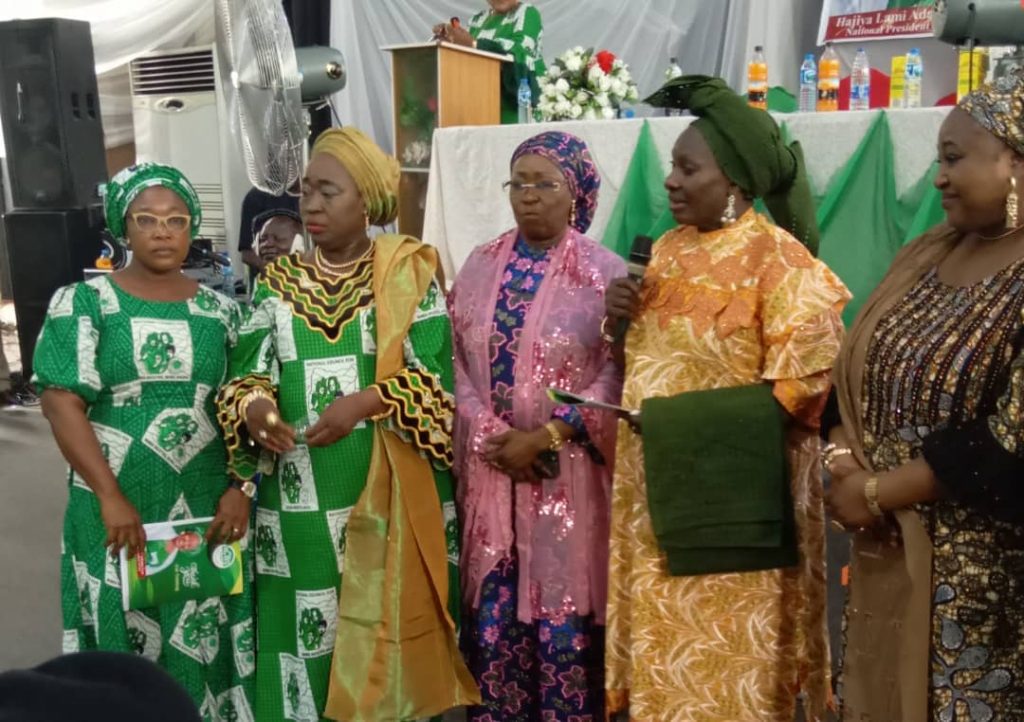The Minister of Women Affairs, Pauline Tallen, and the National Council for Women Societies (NCWS) are calling on the incoming administration to address digital gender inequality in Nigeria, in order to bridge the gap and create a more inclusive and equitable digital landscape for Nigerian women in the 21st century.
They made this plea during an event held in Abuja recently, to celebrate Hajiya Lami Lau’s one-year tenure as the National President of NCWS, under the theme “Digitalisation of Nigerian Women in the 21st Century.”
Read also: KALAMED to equip women with digital skills in new mentorship program
Highlighting the low participation of women
During the event, the Minister expressed concern about the limited participation of women in the recent general elections in Nigeria.
She said currently, the statistics indicate that women hold less than five percent of the seats in state and national legislatures and local government assemblies, which is a concerning and unacceptable situation.
“Women are always the greatest voters, they sacrifice their time and energy and support every election but when it is time to enjoy the dividends of democracy, they are left behind.
“It is a very sad scenario and unacceptable that we have less than five percent of women from the national down to the local government level as representation in the various houses of state and national and local government assemblies.’’she said.
More women should hold political offices
Tallen urged the incoming administration to appoint more women to various positions of power and influence, emphasizing that there are capable and qualified women in all 36 states, including the Federal Capital Territory (FCT), who, if given the opportunity, can make significant contributions to national development, peace, and security.
She highlighted the disparity between women’s active participation in the electoral process and their subsequent exclusion from enjoying the benefits of democracy.
Tallen further urged the incoming government to fulfill their campaign promises, particularly regarding the 35 percent affirmative action, which aims to increase women’s representation in decision-making positions.
She encouraged women not to be discouraged by the election results but to continue showing love and support for one another in order to promote the development of the country and achieve gender equality.
She called on the incoming president to address this gap and stressed the need to increase the representation of women in the various levels of government, from the national down to the local government level.
The minister commended the NCWS for the support and commitment toward women, especially at the grassroots.
Encouraging women at the grassroots
Hajiya Lami Lau, the National President of NCWS, highlighted the council’s achievements in promoting women in politics, leadership, and governance, particularly at the grassroots level.
She also mentioned their efforts in promoting women’s health and empowerment, supporting the end of Gender-Based Violence (GBV), protecting children, promoting education, and advancing the gender agenda.
Lau called on the incoming government to prioritize inclusiveness and consider women politicians, especially those who have demonstrated their commitment but were not chosen during the primaries.
She emphasized the importance of not discouraging these women and ensuring their continued participation in politics.
Dr. Ejike Orji, the Special Assistant to the FCT Minister on Health and Hospital Management, also stressed the significance of women utilizing the digital space for economic empowerment and bridging gender inequality.
He highlighted the development of various programs aimed at empowering women through the use of Artificial Intelligence (AI). These programs enable women to leverage AI for tasks such as conducting research, completing projects, marketing their goods and services, and personalizing AI to meet their specific needs.
Orji emphasized that empowering women in the digital sphere has far-reaching benefits, including reducing maternal mortality rates, enabling women to make informed decisions, and supporting their spouses in enhancing their families’ well-being.
Dr. Asabe Vilita-Bashir, the Director General of the National Centre for Women Development (NCWD), also emphasized the importance of digitizing Nigerian women to bridge gender gaps and promote women’s empowerment across all sectors.
She acknowledged that the world has become increasingly digital, with computers and digital technologies playing a vital role in various aspects of our lives. Vilita-Bashir encouraged women to embrace digital technology as a tool for economic growth and social inclusion.
To support this vision, the NCWD has provided training in ICT to over 3,000 women and girls, including Persons with Disabilities (PWDs). They have also equipped them with start-up kits, laptops, and other necessary support to assist them in utilizing digital tools effectively.
During the event, several awards were conferred to the Minister of Women Affairs and other individuals who have shown support for the advancement of women in Nigeria. These awards recognize their contributions to promoting women’s progress and empowerment in the country.
The event highlighted the significance of digital technology in empowering women and bridging gender gaps. The training programs and support provided by the NCWD demonstrate a commitment to equipping women with the necessary skills and resources to thrive in the digital era.




